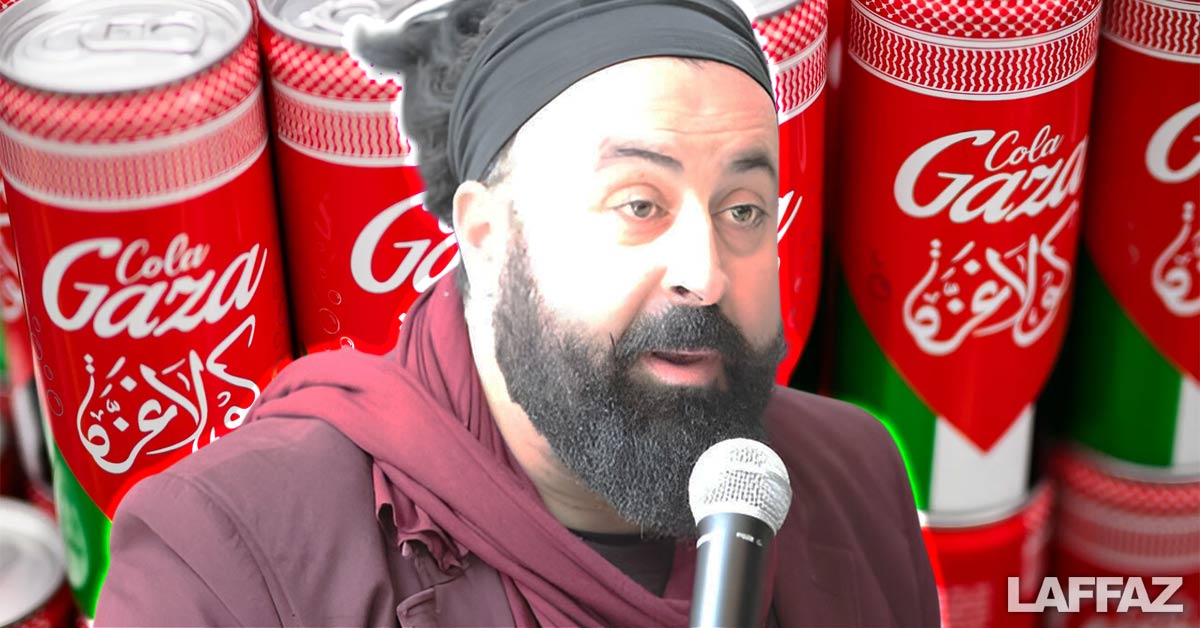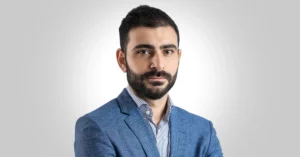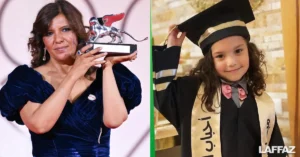Incepted in 2023 by a Palestinian activist and businessman Osama Qashoo, 43, in England, Cola Gaza has sold over 500,000 cans and dedicated the proceeds to the maternity ward of Gaza’s Al-Karama Hospital, according to Al Jazeera.
Cola Gaza boasts of a sweet and acidic taste profile reminiscent of Coca-Cola, formulated using traditional cola ingredients, but with a distinct twist. Qashoo remains tight-lipped about the recipe’s origins, he proudly claims that the formula is “totally different” from that used by Coca-Cola.
Gaza Cola is part of a growing movement of brands raising awareness about Palestine and promoting a boycott of well-known cola brands operating in Israel. Several companies are already making a significant impact. For instance, Palestine Drinks, a Swedish company launched in February, has reported impressive sales figures, with co-founder Mohamed Kiswani revealing to Al Jazeera that they sell an average of three to four million cans of their beverages per month. Another example is Matrix Cola, a Jordanian brand created in 2008 as a local alternative to major players like Coke and Pepsi, which has a significant presence in the Israeli-occupied West Bank. The company reported a doubling of production in recent months. The West Bank-based Chat Cola is also worth a note, owned by Fahed Arar, and manufactured in the town of Salfit, West Bank. Additionally, Spiro Spathis, Egypt’s oldest carbonated drinks company, experienced a notable surge in sales during their “100% Made in Egypt” campaign last year.
According to Jeff Handmaker, an associate professor of legal sociology at Erasmus University Rotterdam in the Netherlands, consumer boycotts serve as a means to raise awareness and hold companies and states accountable for their alleged involvement in atrocity crimes.
“In this regard, the campaign to boycott Coke is evidently successful,” says Jeff
Qashoo emphasizes the importance of keeping the memory of the Palestinian struggle alive, stating “We need to remind generations after generations of this horrible holocaust.” He notes that this tragedy has been ongoing for 75 years, and believes that even small reminders can be powerful. As he puts it, “It just needs to be a tiny, gentle reminder, like ‘by the way, enjoy your drink, greetings from Palestine’.”
Qashoo’s personal journey took a dramatic turn in 2003 when he was compelled to flee Palestine due to his involvement in organizing peaceful protests against the “apartheid wall” in the West Bank. Seeking refuge in the UK, Qashoo redirected his focus towards filmmaking, driven by a desire to share Palestinian narratives through this medium. His efforts culminated in the creation of a trilogy, A Palestinian Journey, which garnered recognition and acclaim, earning the prestigious Al Jazeera New Horizon Award 2006.
Qashoo’s activism continued to evolve, and in 2007, he co-founded the Free Gaza Movement, a campaign dedicated to breaking the illegal siege on Gaza. Three years later, in 2010, he played a key role in organizing the Gaza Freedom Flotilla mission, which aimed to deliver humanitarian aid from Turkey to Gaza by sea. Tragically, the flotilla’s ship, the Mavi Marmara, was attacked in May 2010, resulting in the loss of Qashoo’s cameraman and filming equipment. He was subsequently arrested, detained alongside nearly 700 others, and subjected to torture. His family’s distress was palpable, and they embarked on a hunger strike, refusing to back down until Qashoo’s safety was secured.
Following his resettlement in the UK, Qashoo persisted in his activism, but faced difficulties in generating a sustainable income from his filmmaking endeavors. As a result, he transitioned into the restaurant industry. However, his entry into the carbonated beverages market was entirely unexpected. As Qashoo recounts, “I wasn’t even thinking about this” until late last year, when the idea suddenly took hold. He also sought to create a product that embodied the principle of “an example of trade not aid“.
A recent trend has emerged in the Middle East and North Africa, where a significant number of consumers are choosing to boycott certain brands due to their involvement in recent wars and conflicts. As George Shaw, an analyst at GlobalData, shares with Al Jazeera, a notable 53% of consumers in the region are actively avoiding products from these brands.
Qashoo firmly believes that targeting companies that contribute to genocide can be an effective means of bringing about change. As he puts it, “These companies that fuel this genocide, when you hit them in the most important place, which is the revenue stream, it definitely makes a lot of difference and makes them think.” Qashoo sees Gaza Cola as a key player in this effort, stating that it is “going to build a boycott movement” that will have a significant financial impact on Coca-Cola. Notably, Coca-Cola has faced criticism for its operations in the Israeli Atarot industrial settlement in occupied East Jerusalem and was the subject of a fresh boycott launched on October 7 last year.
Qashoo’s personal life has also played a significant role in his motivation to launch Gaza Cola. His family has been deeply affected by the conflict, and he currently has no knowledge of the whereabouts of his 17-year-old adopted son in the West Bank, who suffered a headshot injury in June. Qashoo’s emotional connection to the cause is evident as he reflects on the devastating impact on his loved ones, saying “I have family in Gaza who have been decimated,” and “I’ve got friends – I don’t know where they are.”
Despite being a relatively short process, Qashoo reveals that creating Gaza Cola was a grueling experience. As he candidly admits, “Gaza Cola was a very hard and painful process because I’m not an expert in the drink industry.” Throughout the journey, Qashoo faced numerous hurdles, particularly when it came to finding like-minded partners. According to Qashoo, potential collaborators consistently pushed for concessions, as he recounts, “Every potential partner was suggesting compromise: compromise the color, compromise the font, compromise the name, compromise the flag.” However, Qashoo remained unwavering in his commitment to his vision, firmly stating, “And we said ‘no, we’re not compromising on any of this’.”
Designing the logo for Gaza Cola proved to be a challenging task. Qashoo’s eyes sparkle as he recalls the process, his face breaking into a cheeky grin as he says, “How do you create a brand which is quite clear and doesn’t beat around the bush?” The end result is a brand that is unapologetically straightforward, with Qashoo proudly stating, “Gaza Cola is straightforward with honest and clear messaging.” However, getting the drink onto store shelves has been a different story altogether. Despite being produced in Poland and imported to the UK as a cost-saving measure, Qashoo has found it difficult to secure widespread distribution. As he notes, “Obviously, we can’t get to the big markets because of the politics behind it.”
Qashoo’s initial strategy for distributing Gaza Cola involved stocking the beverage in his three London restaurants. This approach has proven to be highly successful, with a staggering 500,000 cans sold since its introduction in early August. Additionally, the cola has also gained traction among Muslim retailers, such as Manchester-based Al Aqsa, whose manager, Mohammed Hussain, reports that they have recently sold out of the product.
In addition to its availability in select stores, Gaza Cola can also be purchased online, with a six-pack priced at 12 British pounds ($15). This is significantly higher than the cost of a six-pack of Coke, which typically retails for around 4.70 pounds ($6). Despite the premium pricing, Qashoo is committed to using all profits from the sale of Gaza Cola for a noble cause: rebuilding the maternity ward of the Al-Karama Hospital, located northwest of Gaza City.






